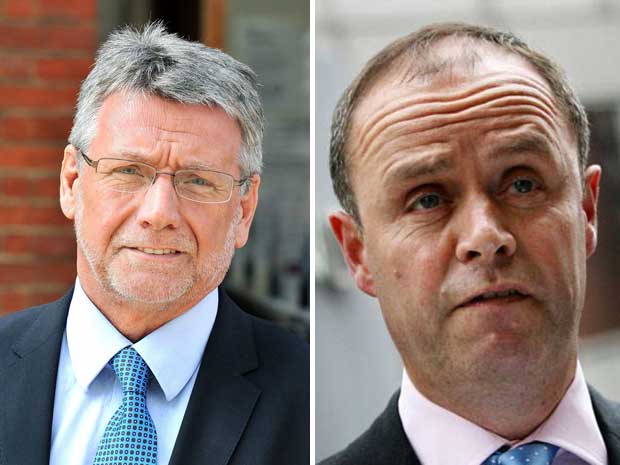Scotland Yard showed 'poor judgement' in appointing Neil Wallis, says IPCC
Police watchdog says professional boundaries 'became blurred' at the Metropolitan Police

Your support helps us to tell the story
From reproductive rights to climate change to Big Tech, The Independent is on the ground when the story is developing. Whether it's investigating the financials of Elon Musk's pro-Trump PAC or producing our latest documentary, 'The A Word', which shines a light on the American women fighting for reproductive rights, we know how important it is to parse out the facts from the messaging.
At such a critical moment in US history, we need reporters on the ground. Your donation allows us to keep sending journalists to speak to both sides of the story.
The Independent is trusted by Americans across the entire political spectrum. And unlike many other quality news outlets, we choose not to lock Americans out of our reporting and analysis with paywalls. We believe quality journalism should be available to everyone, paid for by those who can afford it.
Your support makes all the difference.The IPCC the police watchdog said today that Scotland Yard had made 'imprudent decisions' and showed 'poor judgement' in hiring former News of the World boss, Neil Wallis, as a public relations consultant.
Mr Wallis was appointed as a communications adviser to the Metropolitan Police, and his daughter also got a job with the force.
The watchdog said that professional boundaries 'became blurred', and that their two investigations showed 'senior people appear to have been oblivious to the perception of conflict' amid the phone hacking scandal.
The investigations also ruled out corruption allegations in the decision to appoint Neil Wallis to the £1,000-a-day job with the London police force.
Claims of misconduct over John Yates's alleged involvement in securing a job at the force for Neil Wallis's daughter were also dismissed.
Mr Wallis was arrested and then bailed last year in relation to the Metropolitan police investigation into phone hacking.
Neil Wallis's company, Chamy Media, was paid £24,000 by the Met for PR advice between October 2009 and September 2010.
Deborah Glass, the deputy chairwoman of the IPCC, also expressed concern over the resignation of the former Met Police communications chief Dick Fedorcio, who was told he had a case to answer over the procurement of the contract.
Ms Glass said, 'The IPCC cannot prevent a member of police staff leaving before facing misconduct proceedings. But I can and do observe that such a practice can be hugely damaging to public confidence.'
The IPCC said today that senior figures at the Metropolitan Police were to blame for not carrying out a vetting check on Neil Wallis prior to, or during his appointment as a communications adviser between 2009 and 2010.
John Yates, the former assistant commissioner, left the force when the hacking allegations reached their peak last summer.
The IPCC said today that Mr Yates showed 'poor judgement' in sending Amy Wallis's CV to the head of Human Resources at Scotland Yard.
The action had "the foreseeable consequence that human resources staff believed that they were obliged to find a post", the report said.
Ms Glass said, "In these investigations, at the heart of the issues affecting public confidence was the question of whether two separate arrangements - both involving a form of employment connected to Neil Wallis - were either corruptly entered into or otherwise breached MPS policies and procedures.
“In neither case did we find evidence of corruption, but in both cases we found that policies were breached, and in the case of the former Director of Public Affairs, Dick Fedorcio, that there was a case to answer in relation to misconduct.
"Our investigations were limited in scope to the issues over which we have responsibility. However, the findings should be considered in context.
"Despite the growing phone hacking scandal, which must have exercised the MPS at a senior level and which was beginning to damage the reputation of the Metropolitan Police in late 2009, senior people appear to have been oblivious to the perception of conflict.
"It is clear to me that professional boundaries became blurred, imprudent decisions taken and poor judgment shown by senior police personnel.
"I am acutely aware that both reports are being published against the backdrop of the Leveson Inquiry, which is examining the relationship between the police and the media.
"The ongoing inquiry is painting an uncomfortable picture of the relationship between the biggest police force in Britain and sections of the media.
"This culture has had an impact on public confidence, although I also observe that since these cases were referred, none of the senior personnel referred to in these reports are still serving."
Join our commenting forum
Join thought-provoking conversations, follow other Independent readers and see their replies
Comments